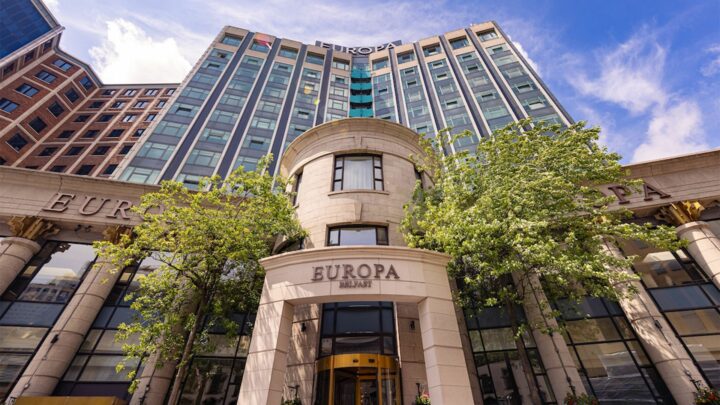Provoked Narratives: Programme 2 – Palestine and Lebanon – a history of solidarity
Description
“Provoked Narratives” is an invitation, in this time of genocide and ongoing aggression, to understand the narratives created around Palestine as part of a long colonial project.
To consider the ways in which the camera, since its very inception, has played a conflicted role in the project of empire. To consider how images have been co-opted, and to see how images can also resist.
The programme presents films made from 1967 to 1984 in varying contexts and using different grammars of resistance, all live and resonant to this day. From shifting gazes on the Palestinian struggle – from UNRWA’s ‘humanitarian’ lens to cinemas in solidarity, and to the Palestinian filmmakers who devised new visual grammars in grief and in defiance. These films ponder questions of generational trauma and resistance, as well as the long history of solidarity between Palestine and Lebanon.
We are grateful to Belfast Film Festival’s invitation and solidarity. We hope that these screenings will deepen learning and stimulate discussion around our shared histories and possible futures. We believe in the power of film to encourage action, to build community, to organise and to mobilise.
PFI is a non-profit organization run by filmmakers on a voluntary basis. This programme is presented with the collaboration of Khadijeh Habashneh, the Jocelyne Saab Association, Third World Newsreels and Audiovisual Archive of the Workers’, Democratic Movement (AAMOD) and Subversive Film.
All proceeds from these screenings will be donated to the Ghassan Abu Sitta Children's Fund.
This Fund is dedicated to the children of Gaza: providing medical attention to the children who need it the most and helping to relieve the medical sector in Gaza. https://gascf.org/
A Zionist Aggression
Following the operation against the Israeli sports delegation participating in the Munich Olympics in Germany in 1972, the Zionist entity launched retaliatory raids against the Palestinian refugee camps in Syria and Lebanon (specifically the village of Da'al in Syria and the Nabatieh camp in Lebanon) on September 8th,1972.
In reflecting the sheer barbarism of the Zionist aggression, legendary Palestinian filmmaker Mustafa Abu Ali is compelled to reach for new filmic grammar to reflect on the brutality. This is a film haunted and haunting, with unfiltered images of death. Lifeless babies, features bloated. Children in hospital beds, limbs twisted, faces bruised. Agony. Skulls shattered. Hands crushed. Occasionally, lifeless eyes blink, a twitch of the hand brings something akin to hope – that life persists, life could persist. The image of a man buried alive by an explosion, his mouth agape, crammed with soil. As he is carefully dug out, we are left in strident silence to ponder the incongruous image, where the shovel is sought to excavate the dead. Yet these hands that excavate with care, that drag a petrified body out of the water, are hands attempting to give back dignity.
Silence accounts for over half of the film’s soundtrack, as if no words are left to contend with the extent of depravity and destruction. The camera is no longer an eye but a part of the performance of war itself. The rolling camera crackles in dignified silence as funeral processions overwhelm the streets. From 1972 when this film was made until today, the blueprint of Zionist aggressions have never changed.
Kufr Shuba
An iconic work produced by the Palestine Cinema Institute in Beirut, Kufr Shuba was directed by the Iraqi filmmaker Samir Nimr, and named after the village of Kufr Shuba in South Lebanon, which was the site of solidarity between the Lebanese people and the Palestinian resistance following a fierce battle that devastated the village.
Kufr Shuba’s filmic structure is reminiscent of Mustafa Abu Ali’s seminal 1974 film They do not Exit in its oscillation between lyrical aesthetics and political statement – from Yasser Arafat’s 1974 speech to the UN General Assembly to “address the question of Palestine” to the reflections of resistance fighters crouching beneath the trees. Stylistically rich, the film’s long landscape shots following Palestinian and Lebanese freedom fighters disappearing between the olive groves also echoes the 1971 film Red Army/PFLP: Declaration of World War by the Japanese Red Army (JRA) and the Popular Front for the Liberation of Palestine (PFLP), which was also shot in Lebanon and drew on fûkeiron, Japanese theory of landscape cinema.
The film is a poetic testament to the steadfastness of Palestinian and Lebanese people, to their commitment to the liberation struggle and their love for the land. As an affectionate voice over refers to the village of Kufr Shuba as “the head of the arrow of an enduring warrior,” the clear political message is that solidarity is the only way to victory.
South Lebanon
In 1976, Lebanese filmmaker Jocelyne Saab travels to the South of Lebanon to document the Israeli attacks on the Lebanese villages of Kufr Shuba and Hanine for French TV. She avoids filming the Palestinian resistance, focusing instead on the military dynamics at work in the context of the Lebanese civil war.
By exposing the complicity of the Phalangists and the Israeli army, she denounces the lies of the Lebanese parties and the injustice of the violence perpetrated against Lebanese civilians in the south of the country. Though one of her earliest films, South Lebanon is reflective of Saab’s distinct filmmaking style – inquisitive, personal, unafraid of asking probing questions and taking bold positions. Her report served to shift the narrative by underlying to a European audience that the Israeli army was not only targeting Palestinians but also knowingly destroying Lebanese villages.
Why?
Activist filmmaker Monica Maurer (1942, Munich) moved to Beirut in 1977 to work with the PLO’s Palestine Cinema Institute and over the course of five years, made six 16mm documentaries about and with the Palestinian resistance. After a successful collaboration in The Fifth War (1979) and Palestine Red Crescent (1980), filmmaker Maurer teamed up once again with Iraqi filmmaker Samir Nimr to make Why?.
Shot in Beirut and released during the Israeli invasion of Lebanon in 1982, the film both portrayed the brutality of the siege and the indiscriminate attacks as well as people’s survival. The film is rhythmed by the urgency of sirens, communicating the human toll of the violence to a wider world in an attempt to rally support for the Palestinian revolution. Simultaneously, the film is loaded with the spectre of an unclear future, the seeds of a massacre that was yet to come.
- Admission £5 - £16



























